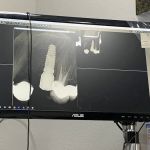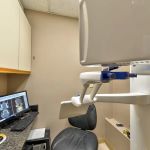- 1-Understanding-Tooth-Nerve-Inflammation
- 2-Common-Signs-and-Symptoms-of-Tooth-Nerve-Inflammation
- 3-Causes-and-Risk-Factors-of-Tooth-Nerve-Inflammation
- 4-How-Inflammation-Affects-Your-Teeth-and-Overall-Health
- 5-Diagnosing-Tooth-Nerve-Inflammation-Effectively
- 6-Treatment-Options-and-Prevention-for-Tooth-Nerve-Inflammation
- 7-Real-Life-Examples-and-Patient-Stories
- 8-How-Dentistry-Toothtruth-Can-Help-You
1. Understanding Tooth Nerve Inflammation
Tooth nerve inflammation, also known as pulpitis, occurs when the dental pulp—the soft tissue inside your tooth containing nerves and blood vessels—becomes irritated or infected. This inflammation can lead to significant discomfort and, if untreated, may cause permanent tooth damage or abscess formation.
Recognizing the early signs of tooth nerve inflammation is crucial for timely dental intervention and preserving your oral health.
2. Common Signs and Symptoms of Tooth Nerve Inflammation
Signs of tooth nerve inflammation often include:
- Persistent or sharp tooth pain, especially when exposed to hot, cold, or sweet stimuli.
- Spontaneous toothache without obvious triggers.
- Increased sensitivity during chewing or biting.
- Swelling or tenderness around the affected tooth or gum.
- Discoloration or darkening of the tooth in advanced cases.
These symptoms may fluctuate initially but tend to worsen over time without treatment.
3. Causes and Risk Factors of Tooth Nerve Inflammation
Several factors can cause inflammation of the tooth nerve, including:
- Dental decay penetrating deep into the tooth.
- Cracked or fractured teeth exposing the pulp.
- Repeated dental procedures that irritate the pulp.
- Trauma or injury to the tooth.
- Severe gum disease affecting tooth roots.
Understanding these causes helps in preventing nerve inflammation through good oral hygiene and timely dental care.
4. How Inflammation Affects Your Teeth and Overall Health
Inflammation of the tooth nerve can compromise the tooth’s structural integrity and lead to infection spreading beyond the tooth to surrounding tissues. Untreated pulpitis often progresses to an abscess, causing severe pain, swelling, and systemic infection risks.
Moreover, chronic dental infections have been linked to broader health issues such as cardiovascular problems and diabetes complications.
5. Diagnosing Tooth Nerve Inflammation Effectively
Dental professionals diagnose nerve inflammation through clinical examination, patient history, and diagnostic tools such as X-rays and pulp vitality tests. Early diagnosis is essential to determine the extent of inflammation and formulate an effective treatment plan.
6. Treatment Options and Prevention for Tooth Nerve Inflammation
Treatment varies depending on severity:
- For reversible inflammation, removing decay and placing fillings may suffice.
- Irreversible pulpitis often requires root canal therapy to remove infected pulp and save the tooth.
- In severe cases, extraction might be necessary.
Preventive measures include regular dental checkups, good oral hygiene, fluoride use, and avoiding trauma.
7. Real-Life Examples and Patient Stories
Many patients share experiences where early recognition of tooth nerve inflammation led to successful treatment and pain relief. For instance, one patient noticed sharp sensitivity to cold and promptly visited a dentist, avoiding a root canal by treating decay early.
Such stories emphasize the importance of paying attention to signs of tooth nerve inflammation.
8. How Dentistry Toothtruth Can Help You
At Dentistry Toothtruth, we specialize in diagnosing and treating tooth nerve inflammation with personalized care and advanced technology. Our team is dedicated to providing relief, preserving your natural teeth, and educating you on maintaining optimal dental health.
Visit Dentistry Toothtruth to access the best treatments and professional guidance for tooth nerve inflammation and other dental concerns.







 Aspen Dental - Glendale, AZ4.0 (602 review)
Aspen Dental - Glendale, AZ4.0 (602 review) Dr. Susan E. Henrickson, DMD, FAGD0.0 (0 review)
Dr. Susan E. Henrickson, DMD, FAGD0.0 (0 review) East Valley Periodontics4.0 (993 review)
East Valley Periodontics4.0 (993 review) Minnesota Periodontal Associates4.0 (8 review)
Minnesota Periodontal Associates4.0 (8 review) Guerra Dental4.0 (293 review)
Guerra Dental4.0 (293 review) Shawnee Christian Healthcare - Dental4.0 (361 review)
Shawnee Christian Healthcare - Dental4.0 (361 review) The Importance of Oral Health Education During Pregnancy for a Healthy Pregnancy
The Importance of Oral Health Education During Pregnancy for a Healthy Pregnancy Best Tips for Brushing Your Teeth Properly for Healthy Gums: Essential Techniques for Oral Health
Best Tips for Brushing Your Teeth Properly for Healthy Gums: Essential Techniques for Oral Health Why Skipping Dental Checkups Can Lead to Bigger Oral Health Problems
Why Skipping Dental Checkups Can Lead to Bigger Oral Health Problems Advantages of Porcelain Dental Restorations
Advantages of Porcelain Dental Restorations How Can Diabetes Cause Tooth and Gum Problems? Preventing and Managing Oral Health Issues
How Can Diabetes Cause Tooth and Gum Problems? Preventing and Managing Oral Health Issues Healthy Habits for Promoting Good Oral Health and Hygiene: Tips for a Healthy Smile
Healthy Habits for Promoting Good Oral Health and Hygiene: Tips for a Healthy Smile